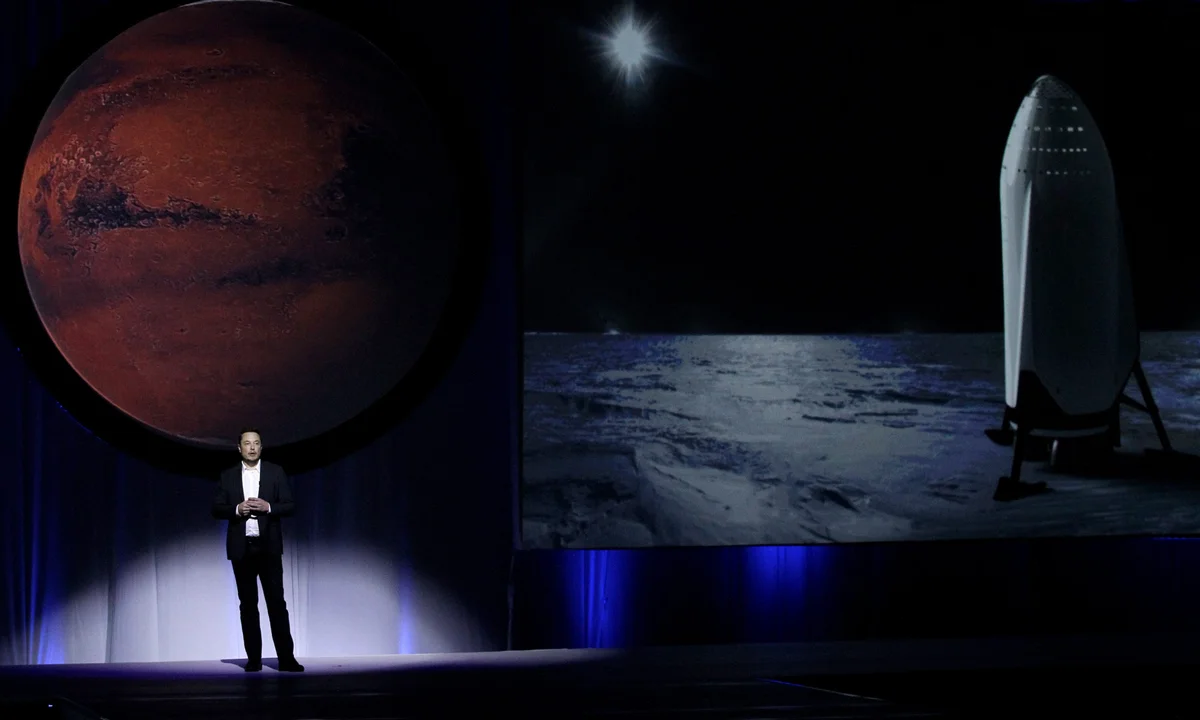We live in a time when rockets bearing humans and cargo to Mars no longer feel like science fiction—they feel within reach. Elon Musk and SpaceX have transformed colonizing the Red Planet from an abstract idea into a concrete plan. But the deeper meaning of that plan often gets overlooked. Explore the deep questions stirred by humanity’s push toward Mars migration—what it reveals about purpose, planetary care, legacy, and the meaning of home in an interplanetary era.
What does choosing Mars say about how we view Earth? Is the idea that Earth might fail us—through climate crisis, nuclear risk, asteroids, or artificial intelligence—turning our cradle planet into a temporary stopover? If humanity begins migrating to Mars, are we essentially declaring Earth obsolete?
Exploring this shift raises profound philosophical questions: What makes one planet home? Do we abandon one world for another, or bring the same mistakes with us? Can we bring with us purpose, meaning, and responsibility? And might in striving for Mars, we rediscover the true value of Earth?
In this global blog, we examine these questions—not with bullet lists, but with careful reflection, real-world context, and reflective clarity. We’ll draw on environmental science, philosophy, human history, and the visions of people like Elon Musk to frame the debate. And we’ll close with insight from Mattias Knutsson, a strategic thinker who knows how supply chains, values, and futures intertwine.
Reexamining Home: What It Means to Be Earth-Bound
For all our ambition to leave, Earth remains the only place we understand fully—a uniquely complex, self-regulating system that sustains every breath. The Earth isn’t just a planet; it’s a home in the deepest sense, woven through our languages, myths, bodies, and relationships.
Thinking about migrating off it begs the question: is Earth becoming obsolete—or do we risk making it obsolete by treating it as such? Technologies that allow us to leave should not overshadow the ongoing need to tend, repair, and cherish the planet that made us.
To declare Earth obsolete is to undervalue billions of years of evolution, ecological interconnectedness, and human culture. The idea of Mars migration may well stem from a sense of desperation about what we are doing to Earth—climate breakdown, biodiversity loss, geopolitical tension. But framing the solution as exit, rather than repair, risks making displacement a default rather than a last resort.
The Philosophical Crux of Mars Migration Interplanetary Flight
At heart, migrating to Mars forces us to ask: What does being here—and being anywhere—actually mean?
Home is more than coordinates. It is affiliation, history, memory, and identity. A childhood felt in creaking house floors, the taste of local foods, family stories rooted in place—all of these are deeply spatial. What happens when we port those to sterile habitats, pressurized domes, or underground burrows? Will meaning simply follow us, or will it fracture?
Humanity’s history shows we move—but mostly to transform places we share into new homes. Yet even cities on Earth rarely become complete substitutes for the villages and landscapes people left behind. Will Mars, at first a harsh patchwork of habitat modules, ever feel like home—or instead like a refuge, alien to the human soul?
Space philosopher Simon Winchester once observed that Earth shaped human values in ways no other planet could. Would we carry that soil-bound wisdom to Mars, or start anew—with unfamiliar ethics and unforeseen dislocations?
Earth as Laboratory and Wisdom Source
Rather than thinking of Earth’s obsolescence, perhaps we ought to think of it as first lab—a place that taught us science, philosophy, ethics, community, and imagination.
Earth gave us agriculture, legal systems, cities, arts—and also the mistakes we must not repeat, from ecological hubris to empire-building. As we prepare to step toward Mars, we’re not just seeking new frontiers—we’re taking Earth’s wisdom with us.
Terraforming a planet, building closed-loop ecosystems, treating climate as systems—not to mention governing a society of many—are all exercises rooted in lessons we must learn and test back home. Mars colonists may bring Earth’s water recycling, electromagnetic shielding, polyculture farms, and circular economies—but if those fail to thrive on Mars, they must thrive on Earth first.
In that sense, Earth isn’t obsolete—it is necessary. We need it as home, test bed, and anchor, even as we reach beyond it. Sustainability here is not outdated, but foundational.
The Ethics of Abandonment
If we successfully build a city on Mars, what shall we owe Earth in return? There will be temptation to treat Mars as a new phase—opening escape routes for the richest, the fittest, the bluestky, and letting the rest manage Earth’s collapse.
Some critics have suggested a morally terrible future edge: save a select few in O’Neill cylinders and leave the majority to deteriorate at home. Science fiction has already explored dystopias where the colony is ecotopia—and Earth becomes toxic.
This raises critical ethical questions: Is off-world expansion a duty only if Earth is flourishing? Or does our planetary imperative require solving problems here, before switching arenas?
Space ethicist Robert Sparrow once asked: “What gives us permission to uproot ourselves and treat a new world as a blank slate?” The answer must include a guarantee that Earth receives continued care and that migration isn’t escape—but a conscious continuation of Earthly stewardship.
The Sum of Our Parts: Purpose, Identity, Meaning
Mars migration won’t only be a logistical trial—it will be a spiritual enterprise. Communication delays, alien terrain, isolation from Earth cultural rhythms—each poses psychological questions about identity and connectivity.
We’ll need art, myth, ceremony anchored in both Earth and Mars. We’ll need education that transplants Earth’s ethical frameworks and expands them to Mars context. We’ll need new philosophies that recognize planetary plurality without chauvinism.
If we fail to build that, Mars colonies risk becoming pragmatically functional—but spiritually hollow. To make interplanetary life meaningful, we need to cultivate new rituals, new arts, and new values—rooted in respect for Earth and wonder for Mars.
Planetary Stewardship in an Interplanetary Era
The belief that Earth is becoming obsolete undermines its status as unique. Yet planetary stewardship is not extinguished when we leave—it is intensified. When we plant flags on multiple worlds, we create intellectual and moral pressure to treat each world with care.
A future society that treats Mars like a frontier proceeds from deeply flawed models of conquest and resource extraction. Humanity’s legacy should be collaboration, long-term ecological harmony, and multi-planetary citizenship.
The philosopher Timothy Morton has used the term “hyperobject” to describe Climate Change—an immensely bigger context than individual humans. Mars colonization may bring new hyperobjects: a network of planetary systems. Our moral imagination must expand, not shrink.
Final Reflection from Mattias Knutsson
Mattias Knutsson, a respected strategizer in global procurement and development, reflects on these questions through the lens of systems and values:
“A supply chain is not just logistics—it is value without which things have no purpose. If Earth becomes obsolete in our vision, then cheap resource access on Mars becomes a utilitarian exercise—not an act of stewardship. For interplanetary migration to mean something, each module we build, each kilogram we ship, must carry our ethical heritage—not just technology.”
Conclusion:
Mars migration is not an indictment of Earth—it should be a tribute to it. The path we choose reveals what we value most. Will we sustain the only planet that raised us? Will we take its lessons, its ethics, its deep social fabrics to Mars?
Or will we slip into believing Mars is the fix—and Earth the used-up chassis?
In the end, human destiny may not hinge on leaving Earth, but on remembering what it taught us. Mars can be Plan Next—not because Earth failed, but because Earth succeeded.
As philosopher Jan Assmann said, humanity is best when it remembers where it came from—even as it goes further.
Our future may be multi-planetary—but it is only profoundly human if we bring Earth with us in our hearts.





